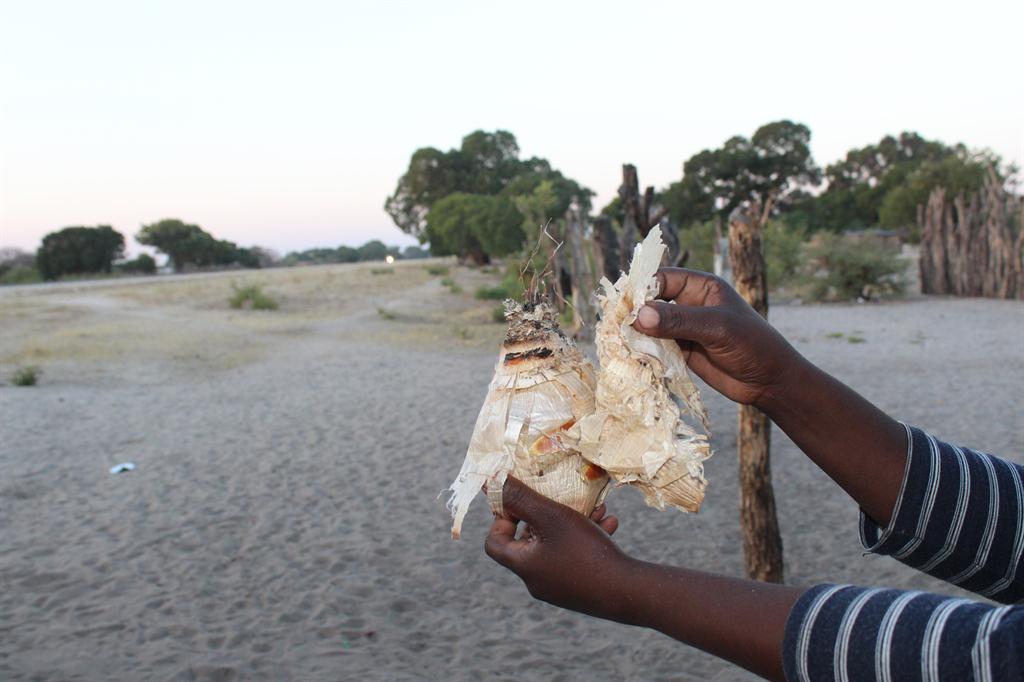Too poor to buy pads
Mattresses, pillow stuffing, dried leaves and cotton cloths, as well as plants and roots, are being used by women and girls during menstruation.
Women and girls from poor households are left with no option but to resort to harmful practices when they menstruate, thereby putting their lives at risk.
They have to resort to using mattresses, pillow stuffing, dried leaves and cotton cloths when they menstruate, because they cannot afford sanitary pads.
Some do not even have access to sanitary products, as they live in places where shops are alien.
Last week Namibia celebrated Menstrual Hygiene Day, where calls were made for an end to the harmful traditional practices used by women and girls when they menstruate.
Namibian Sun visited Ncamagoro village in Kavango West, among other places, where women explained why they use these practices.
The women showed Namibian Sun a tube-like plant known as epepo, saying this was one of the traditional ways in which they deal with menstruation.
They also demonstrated how they peel off a part of the plant, and then rub it until it is softens and feels like cotton, before using it as a sanitary towel.
The women said a large epepo plant can be used for up to three months.
Namibian Sun was also informed that young girls have to take epepo to school in case of emergency.
Another traditional practice is using the roots on a certain plant, which is pounded until it feels like cotton.
The women indicated the reason they resort to these practices is because they are unemployed and do not have money to buy sanitary pads.
“We are poor and we are unemployed. We do not have money to buy sanitary pads from the shops, as they are expensive. That is why we use epepo and the roots as a way to contain our menstruation,” the women said.
They also revealed that some young girls and women have resorted to using Depo-Provera birth control injections at a local clinic, in the hope that they will not have their periods.
However, it is not guaranteed that once a woman receives the injection she will not menstruate.
Education ministry executive director, Sanet Steenkamp, who was the keynote speaker at the Menstrual Hygiene Day event held at Rundu, called on stakeholders to assist.
“When girls and women are not informed, they resort to harmful practices that can put them at risk of infection and long-term health consequences,” Steenkamp said.
“We take cognisance of the dreadful anecdotal stories about the things that are used in order to manage menstruation, and it is our responsibility to ensure that these practices come to an end.”
Steenkamp said menstruation should be spoken of more often, as it affects thousands.
“The continued silence and stigma around menstruation, combined with limited access to information at home and in schools, results in thousands of women and girls in Namibia having little knowledge about what is happening to their bodies when the menstruate and how to deal with it,” Steenkamp added.
KENYA KAMBOWE
They have to resort to using mattresses, pillow stuffing, dried leaves and cotton cloths when they menstruate, because they cannot afford sanitary pads.
Some do not even have access to sanitary products, as they live in places where shops are alien.
Last week Namibia celebrated Menstrual Hygiene Day, where calls were made for an end to the harmful traditional practices used by women and girls when they menstruate.
Namibian Sun visited Ncamagoro village in Kavango West, among other places, where women explained why they use these practices.
The women showed Namibian Sun a tube-like plant known as epepo, saying this was one of the traditional ways in which they deal with menstruation.
They also demonstrated how they peel off a part of the plant, and then rub it until it is softens and feels like cotton, before using it as a sanitary towel.
The women said a large epepo plant can be used for up to three months.
Namibian Sun was also informed that young girls have to take epepo to school in case of emergency.
Another traditional practice is using the roots on a certain plant, which is pounded until it feels like cotton.
The women indicated the reason they resort to these practices is because they are unemployed and do not have money to buy sanitary pads.
“We are poor and we are unemployed. We do not have money to buy sanitary pads from the shops, as they are expensive. That is why we use epepo and the roots as a way to contain our menstruation,” the women said.
They also revealed that some young girls and women have resorted to using Depo-Provera birth control injections at a local clinic, in the hope that they will not have their periods.
However, it is not guaranteed that once a woman receives the injection she will not menstruate.
Education ministry executive director, Sanet Steenkamp, who was the keynote speaker at the Menstrual Hygiene Day event held at Rundu, called on stakeholders to assist.
“When girls and women are not informed, they resort to harmful practices that can put them at risk of infection and long-term health consequences,” Steenkamp said.
“We take cognisance of the dreadful anecdotal stories about the things that are used in order to manage menstruation, and it is our responsibility to ensure that these practices come to an end.”
Steenkamp said menstruation should be spoken of more often, as it affects thousands.
“The continued silence and stigma around menstruation, combined with limited access to information at home and in schools, results in thousands of women and girls in Namibia having little knowledge about what is happening to their bodies when the menstruate and how to deal with it,” Steenkamp added.
KENYA KAMBOWE




Comments
Namibian Sun
No comments have been left on this article